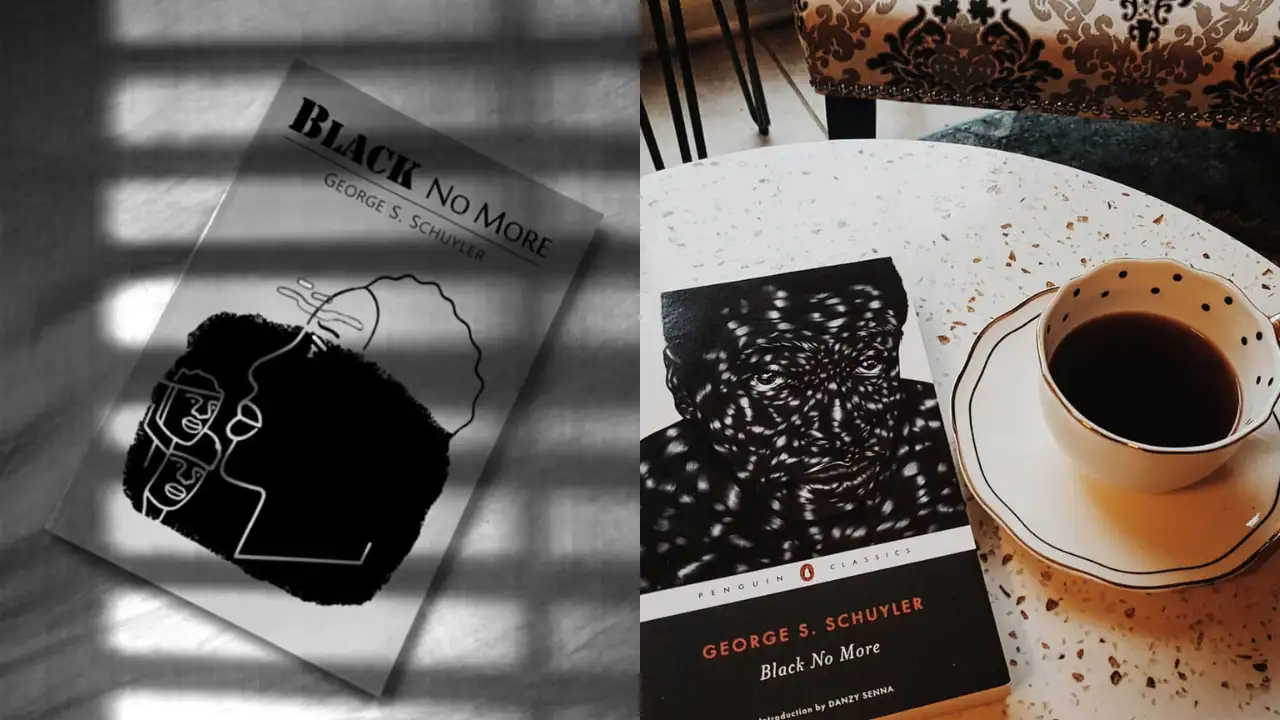By Girish Shukla
In 1931, George S. Schuyler published ‘Black No More’, a satirical novel so sharp, so uncomfortable, and so far ahead of its time, it should be required reading in 2025. It was a commercial success in its day, stirring praise and outrage in equal measure. Today, it’s almost entirely forgotten outside academic circles. That silence is both baffling and telling, because ‘Black No More’ anticipated the very conversations that dominate public discourse nearly a century later. Also Read: The Forgotten Bestseller That Might Just Be the Best Book You Have Never Read At its core, ‘Black No More’ is about race, identity, capitalism, and the painful absurdity of social constructs. It asks a question so radical in 1931 and still unsettling today that it feels like a provocation: What would happen if Black people could become white? A Premise That Feels Like a Punch The story begins when Dr. Crookman invents a procedure that can turn Black people white. Max Disher, the novel’s protagonist, undergoes the transformation and becomes “Matthew Fisher,” a white man navigating a newly privileged life. What follows is a whirlwind of dark humour, satire, and social commentary as entire communities scramble to adapt to the consequences of racial erasure. In Schuyler’s world, whiteness is currency, and the ability to “pass” for white is not just a scientific breakthrough; it becomes a national obsession. Black identity becomes a liability to be discarded, and whiteness becomes an illusion anyone can purchase. The book is not subtle. It is deliberately outrageous, and its impact lies in how close it cuts to the bone. Satire That Still Stings Schuyler’s genius lies in how he uses comedy to reveal deep truths. ‘Black No More’ is funny, but it’s not kind. It mocks white supremacy, Black elitism, religious hypocrisy, and the commercialisation of race itself. It points to how institutions — political, economic, and cultural – all rely on the maintenance of racial divisions for profit and power. Reading it today feels like watching history on loop. The novel skewers racism not as a character flaw, but as a system designed to benefit a few and control the rest. It exposes how quickly identity can be commodified, politicised, and manipulated when it serves someone’s agenda, themes that remain chillingly relevant. A Mirror to Today’s Debates Discussions around racial passing, colourism, performative allyship, and identity politics are everywhere right now. Whether it’s online outrage cycles or real-world protests, the tension between individual identity and collective struggle is constantly being negotiated. Schuyler tackled all of it in 1931. He raised questions that echo in modern media and politics: What does it mean to be “authentically” Black? Who benefits from racial divisions? Can whiteness exist without the invention of Blackness as its opposite? These are not easy questions, and Schuyler does not pretend to offer comfortable answers. Instead, he holds up a mirror—warped, satirical, but unmistakably honest and asks readers to look closely. Why It Was Forgotten So why did a book this brilliant and biting fade into obscurity? Part of the reason is Schuyler himself. A complex and controversial figure, he was a Black conservative who often clashed with other Black intellectuals of his time. His later writings drifted toward extreme politics, which alienated him from the civil rights movement and academic canon alike. But another reason might be that ‘Black No More’ is simply too uncomfortable. It doesn’t flatter anyone. It mocks every political side. It exposes hypocrisies across the board. And in doing so, it demands that readers confront their own assumptions about race, class, and what justice really looks like. As conversations about identity grow louder, more urgent, and more polarising, ‘Black No More’ offers something rare: clarity through satire. It’s not an easy read, emotionally. But it is sharp, smart, and shockingly fresh. It dares to ask what happens when the illusion of race is stripped bare, when identity is revealed as a system that can be bought, sold, or erased. Also Read: The Forgotten Bestseller That Was Banned, Burned, and Buried for Decades In 2025, we will often talk about representation, visibility, and reclaiming narratives. George S. Schuyler did all of that in 1931, with biting humour and fearless critique. It’s time we stop treating Black No More as a historical footnote and start reading it for what it is: a novel that predicted the future, mocked it, and left us with a challenge we still haven’t answered.
